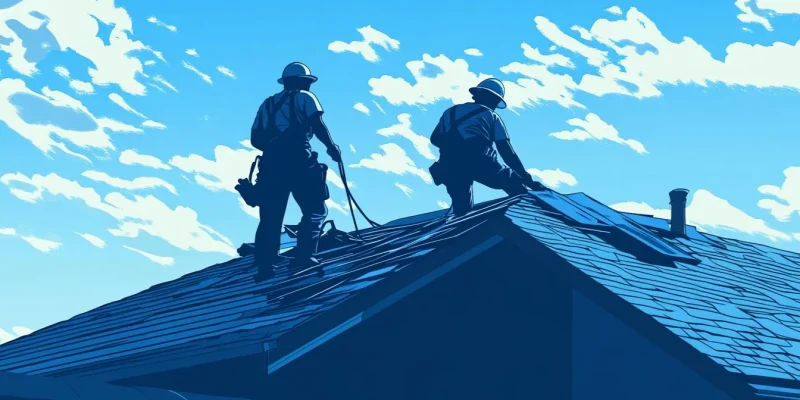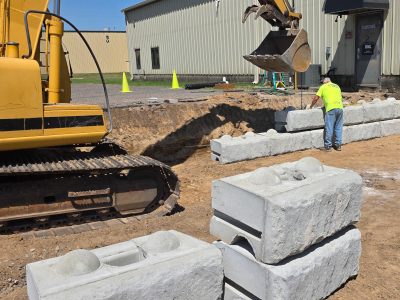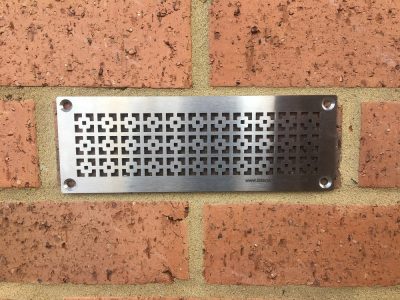Understanding the Roofing Landscape in Dallas
The Importance of Local Expertise in Roofing
When searching for a roofing company in Dallas, locality cannot be overlooked. Local expertise ensures that the roofing contractor is well-acquainted with the specific building codes, weather patterns, and architectural styles prevalent in the area. Dallas is known for its distinct combination of hot summers and mild winters, requiring specific materials and techniques that can effectively withstand the local climate. A roofing company in Dallas familiar with these conditions can offer tailored solutions that not only comply with regulations but also promote resilience against local weather wear and tear. Additionally, local roofing companies are often better positioned to respond swiftly to emergencies or unexpected issues that arise during roofing projects, ensuring peace of mind for homeowners.
Common Roofing Materials Used in Dallas and Their Benefits
The choice of roofing materials in Dallas is heavily influenced by the local climate, aesthetics, and durability requirements. Asphalt shingles are one of the most popular choices among homeowners due to their affordability and versatility. They are available in various colors and styles, making them a fitting choice for nearly any home design. Metal roofs, on the other hand, have gained popularity for their longevity and energy efficiency, reflecting heat away from homes and significantly reducing cooling costs in the hotter months. Clay and concrete tiles, often associated with Mediterranean-style architecture, are also a common sight in Dallas neighborhoods. They provide excellent durability and an upscale appearance, although they are generally heavier and more expensive. Understanding the pros and cons of each material is essential for homeowners to make informed decisions based on their budget and aesthetic preferences.
Dallas Climate’s Impact on Roof Longevity
The unique climate of Dallas, characterized by hot summer temperatures that can soar above 100°F, intermittent hailstorms, and occasional winter freezes, directly impacts the durability and longevity of roofing systems. As sunlight exposure increases, ultraviolet (UV) radiation deteriorates certain roofing materials, leading to accelerated wear and potential leaks. Hailstorms, common in spring, can cause significant damage to roofs, particularly those with softer materials like asphalt shingles. Understanding these climatic challenges is crucial for Dallas homeowners as it affects not only the choice of roofing materials, but also the maintenance frequency required to ensure optimal roof performance. Regular inspections and proactive maintenance can extend roof lifespan and prevent costly repairs.
Choosing the Right Roofing Company: What to Look For
Key Qualifications and Certifications for Roofing Contractors
Choosing a reputable roofing company involves verifying their qualifications and certifications. A reliable roofing contractor should possess appropriate licensing, insurance, and bonding essential elements that protect both the workers and homeowners. Look for certifications from manufacturers, which often indicate that the contractor has undergone training and meets industry standards for installation and workmanship. Furthermore, membership in professional organizations, such as the National Roofing Contractors Association (NRCA), can signal a commitment to staying updated with industry best practices and legislation. Homeowners should also inquire about ongoing training and education for contractors to guarantee a workforce that’s knowledgeable about new technologies and products that can enhance roofing systems.
Importance of Customer Reviews and Testimonials
In the age of digital information, customer reviews can be a treasure trove of insights about a roofing company’s performance. Not only do they shed light on the contractor’s reliability and quality of work, but they also reveal how they handle customer service issues. Websites like Google, Yelp, and Angie’s List provide platforms for past clients to share their experiences. However, homeowners should look for patterns rather than individual comments consistent praise or criticism points towards a company’s true strengths and weaknesses. Additionally, asking for local references enables homeowners to see firsthand the company’s completed projects and talk to others who have recently undergone similar work. This due diligence can be pivotal in finding a trustworthy and competent roofing service.
Questions to Ask Before Hiring a Roofing Company
Before signing a contract with a roofing company, there are critical questions homeowners should ask to ensure they make an informed decision. Start by inquiring about their experience how long have they been in business, and do they specialize in roof replacement, repair, or both? It’s also important to understand the insurance coverage offered: does the company have liability insurance and workers’ compensation, and can they provide proof? Additionally, ask about warranties covering both labor and materials, as well as the process for resolving issues that might arise after installation. Homeowners should delve into the expected timelines and processes, such as how long the project will take and how many workers will be involved during installation. These conversations provide clarity and help foster a transparent relationship between homeowners and contractors.
The Roofing Process: From Estimate to Completion
How to Prepare Your Home for a New Roof Installation
Proper preparation for a new roof installation can expedite the process and minimize disturbances. Homeowners should start by clearing the area around their home, moving vehicles, outdoor furniture, and any decorations that may obstruct the contractors’ access to the roof. It’s also beneficial to ensure that pets are kept inside or away from the worksite to avoid accidents or unnecessary stress. Understanding the typical roofing process and timeline can also help homeowners designate appropriate times for work, as roofing projects can create noise and debris. Furthermore, discussing the intended installation schedule with the roofing company can set clear expectations for both parties, thereby minimizing confusion and maximizing efficiency.
The Step-by-Step Guide to a Roofing Project
The roofing process typically unfolds in a series of well-defined steps. It begins with an initial assessment by the roofing contractor to determine the extent of the project, followed by obtaining the necessary permits. Once approvals are in place, the contractor will initiate the process of removing the old roofing material, which might involve stripping down several layers of roofing, specifically in older homes. After this, a thorough inspection of the underlying structure is conducted to identify any damage, as this may require immediate repairs. Following preparations, the new roofing material is installed, which includes laying underlayment, applying shingles or tiles, and ensuring all flashing is properly sealed. Final inspections and cleaning conclude the project, ensuring the job adheres to both local regulations and the homeowner’s satisfaction.
Understanding Roofing Warranties and Aftercare
Warranties are more than just a piece of paper they are an assurance of quality and protection against future unforeseen repairs. Most roofing materials come with manufacturer warranties that cover defects, while roofing companies provide workmanship warranties that cover installation-related issues. It’s crucial for homeowners to understand the terms of these warranties thoroughly, including the coverage durations and what procedures need to be adhered to. Furthermore, proper aftercare is essential for maintaining a newly installed roof; this includes scheduling regular inspections, keeping gutters clean, and promptly addressing any minor repairs. Engaging in proactive maintenance can extend the life of the roof and help avert more significant issues that lead to costly repairs or premature replacement.
Financing Your Roofing Project: Affordable Options for Homeowners
Exploring Insurance Coverage and Claims for Roof Repairs
Roofing works can be a significant investment, which is why understanding insurance coverage is crucial for homeowners. Many homeowners’ insurance policies include provisions for roof repairs due to damages caused by natural elements like storms, hail, and other incidents. However, it’s essential to familiarize yourself with the policy details what’s covered, the deductibles involved, and how to file a claim effectively. If the damage is extreme or if a roof is aging, your insurance adjuster may recommend a complete replacement rather than repair. Homeowners should maintain detailed records of their roof’s condition, previous maintenance, and any communication with contractors, as this documentation can prove beneficial during the claims process.
Innovative Financing Solutions for Roof Installation
In addition to insurance coverage, there are several financing options available for homeowners considering a new roof installation. Many roofing companies offer tailored financing plans that allow homeowners to budget their expenses effectively, often including terms like zero-interest for a specific period or low monthly payment options. Additionally, federal and state programs may provide grants or incentives for energy-efficient roofing solutions, potentially leading to long-term savings on energy bills. Home equity loans are another avenue worth exploring; they can provide the necessary funds upfront in exchange for equity in the home. Homeowners should meticulously evaluate these financing options to select a plan that aligns with their financial situation while ensuring they meet their roofing needs.
Why Investing in Quality Roofing Saves You Money Long-Term
While the initial outlay for an upgraded roofing solution may appear daunting, it’s essential to understand the long-term savings associated with quality roofing. High-quality materials often feature durability, better energy efficiency, and require less frequent maintenance, which translates into reduced long-term costs. Investing in a well-installed roofing system reduces the chances of premature failure that could necessitate costly repairs or replacements down the road. Furthermore, energy-efficient roofing can help lower utility bills by keeping homes cooler in the summer and warmer in the winter, further enhancing the benefits of investing upfront. Ultimately, quality roofing not only increases home value but ensures that the investment pays off in reduced maintenance, enhanced comfort, and a healthier living environment.











Comments